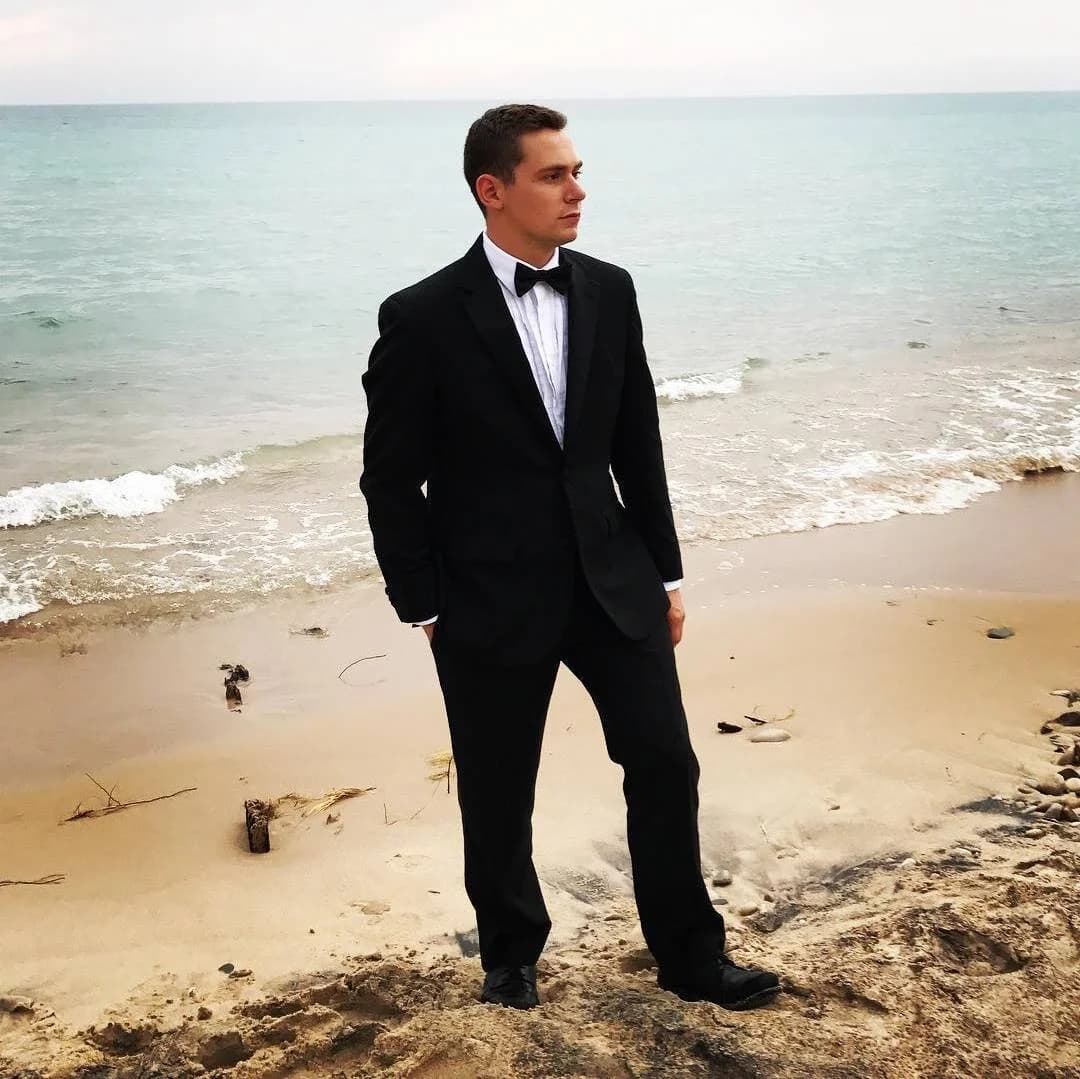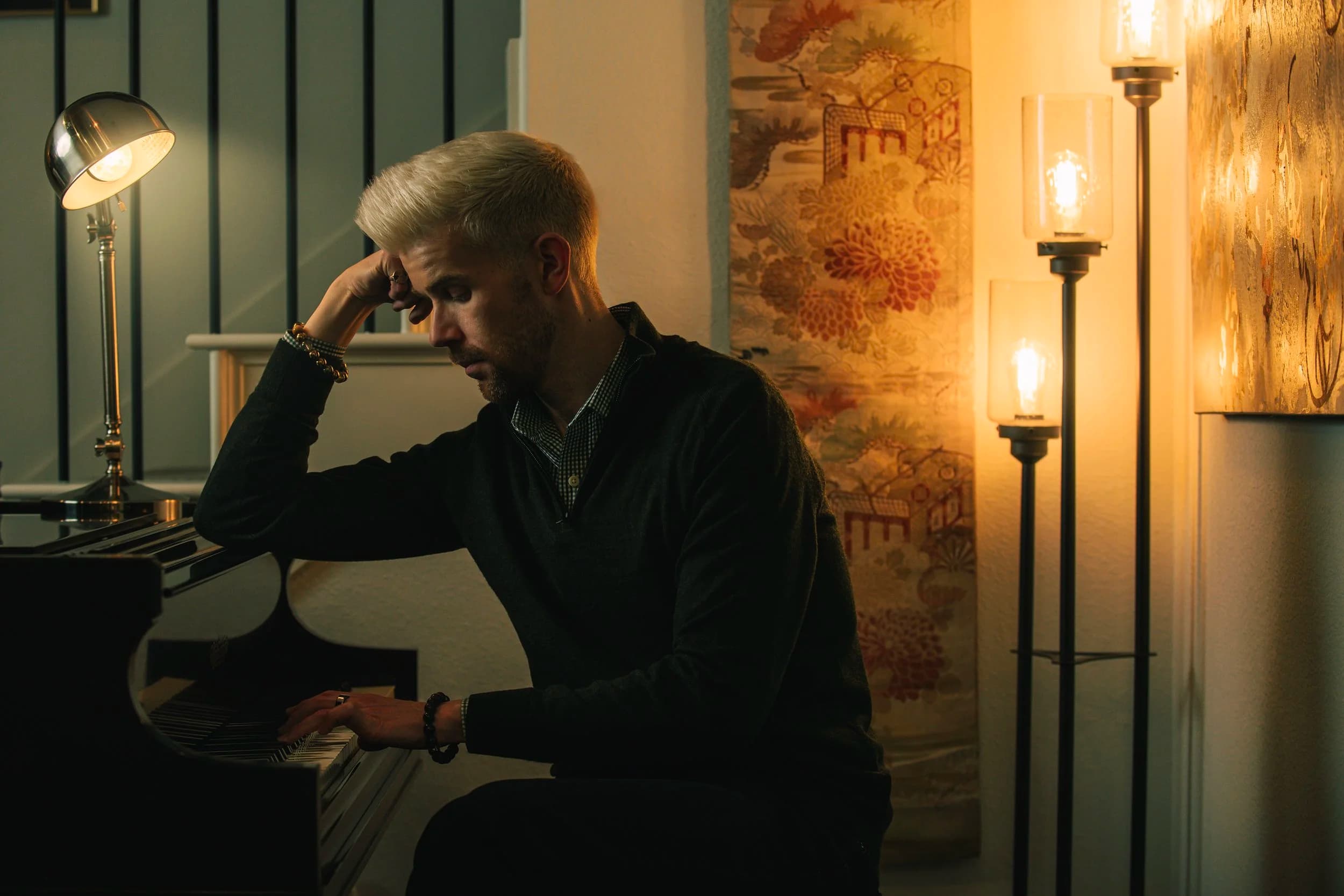Ian Morin: Professor of Bassoon at Cleveland State University
By Garrett John Law
Welcome to Classically Minded. Today's guest is bassoonist, Ian Morin.
Garrett: Welcome to Classically Minded. I'm your host Garrett John Law. Today I'm joined by bassoonist, Ian Morin. Ian is active as a performer across the state of Ohio and serves as Professor of Bassoon at Cleveland State University. Welcome, Ian!
Ian: Happy to be here. Thank you for asking me to do this.
Garrett: I want to get right to it. There was a point in the pandemic where you were considering your future in music and what it was going to look like. Given that you are a conservatory-trained musician, what led you to that point?
Ian: Yeah, it was rough. We tend to go through a lot of failed auditions in the beginning, right? And before the pandemic, I was in a stretch where I wasn't winning auditions and that was getting to me.

And then around January, I started taking more auditions and I was doing well. I was being more positive about things in my life. Then the pandemic hit and it shut down all the other auditions.
So I lost my momentum. I stopped playing for almost that whole entire summer.
Until I saw this guy playing jazz bassoon. He was playing Giant Steps by Coltrane. And I was like, wow, that's insane. I needed to play music again, not just for an audition, but for myself. I got lost in auditions that I lost track of why I started music in the first place. You know, just the love of making music.
So I figured why not? I'll tackle something completely new. And it turned out to be a great experience for me. And it changed my outlook on what music means to me.
And then there were small moments that got me back into playing again. And this is where Paul Hogle came in and asked me to play concerts in the fall at Cleveland Institute of Music. That's something I needed to look forward to.
And then all of a sudden the Battle Creek Symphony asked me to play with them and things started picking up more and more. So I started putting out more videos. I could post more because I had this energy again. I had to keep the momentum going.
Something I didn't mention before was that I started learning software engineering on the side. I needed something with security and I needed something with security now. This is something I could sit at home and learn on my own. So that's what I did the whole summer.

As the year went along and I started performing more, I kind of backed away from studying. And I'm just on and off at this point. But you know, I still have it in my mind that I should probably look into this, because I don't know what's going to happen.
But on the bright side, things are looking better and better. I've seen orchestras jump back in and I've seen chamber groups performing as well. I've been a part of those and I feel very fortunate.
Garrett: You've definitely been on a journey through this pandemic. Good for you for picking up software engineering! You've also been making some videos of yourself playing bassoon as well. Maybe you could tell us a little bit about how you make those videos and how it's allowed you to play some new music?
Ian: I've always loved chamber ensembles. Whether that be duets, trios, quartets, quintets. In my mind, I always have a certain image when I hear things. So video editing gives me the opportunity to record everything on my own and bring out these colors that I'm seeing.
I downloaded an app called Acapella. But it's very hard to play in time on it. I'll try to line things up and memorize as much as I can. But I wanted more control so I ended up buying editing software on my computer and started learning how to really put them together myself to get better audio and visual quality.
Garrett: And tell me a little bit more about this process, especially how you phrase as an ensemble when you're not really playing in real-time with yourself?
Ian: It's going to sound really weird, but I actually chop it up in bits and pieces first. I might play a line like 30 times with different types of crescendos and line it up with different parts to see how it works together. And I'll record phrase-by-phrase like that. Then I have that track in my ear as I do the final take so I'm listening to how it should sound like in the end.
Garrett: It sounds like you're a little bit obsessive when it comes to this phrasing.
Ian: Yeah, I like phrasing a lot...
Garrett: Well, that can come in handy. You've taken a number of orchestral auditions and that takes a ton of preparation. Could tell us how you do that as well?
Ian: Sure, there was this book I read called "Five Weeks to Finals" by the flute player of the Detroit Symphony. I bounced my ideas off of hers. Essentially, I want to have two weeks of buffer time before the actual audition. I don't want to be stressing out. I want to take it easy and do small runs at that point.
Prior to that, I want to have at least four to five weeks, to be grinding every day. At that point, I'll write down all the excerpts I'm very comfortable with, the excerpts I've played before, the excerpts that are just challenging. This was an idea I got from the book as well as my teacher, Barrick Stees.
Then you can put all the excerpts in a hat and pull them out randomly. I haven't done that yet, but I work through the list three days at a time. I'll work on specific excerpts with slow, detailed practice.
Not just playing the excerpts, but starting from the foundations. That involves listening to what the bassoon phrase sounds like. And there's more studying than just the technical aspect of it as well. I listen to different orchestras to hear and compare interpretations.
Garrett: So we've talked about the motivating factor of taking auditions and having this process to guide you. Now, I'd like to transition to mental health and how you have coped through the pandemic.
Ian: First of all, it was hard. I've made a lot of posts showing the exciting things that I'm doing, but in reality, it's just been hard. Like I mentioned earlier, music the only thing I thought I could do and it was stripped away from me. So I was in panic mode.
I was on unemployment for a while. And yes, it was nice to have money coming in weekly, but that really hurt. I couldn't do anything that I loved.
At that point, I heard about a job opening at UPS. I got the job and the people there are great and they really worked with me as a musician as well, which was nice.
But man, working in retail, that's just not for me. And, I'm not always good at pulling away from something when I really should. I got sucked in. I was making money and that's all I had to think about. I needed to make money to survive.
So it was a real struggle. I wasn't getting any gigs and that was paid part-time work. I had to work as much as I could and that took a huge toll on me.
I put my girlfriend through so much of this too. And she was like, "you have to quit. You'll find out what to do later." I thought I needed to work through it, even though I'm losing everything I love.
I stopped playing the bassoon. I wasn't studying anymore. I was losing everything just to survive and eventually, my girlfriend got me to realize that there are some sacrifices you just have to make for yourself. You will figure it out after the fact.
So I finally stopped working for UPS in January and things immediately got better.
If I could preach this to anybody, you should never be working more than what you're getting paid for. You shouldn't be forcing yourself to stay there when there's something else that you should be doing. Especially if it's your passion.
Don't work somewhere where your mental health is constantly going down just to make money. Because that's what was happening to me. And I was getting in a dark place mentally. I got out and the weight was immediately lifted once I did.
Then, I started getting more gigs and Paul Hogle called me up again. He asked how I was doing and I told him I just quit. He said he had an opportunity for me.
He set me up with a job in the alumni office at Cleveland Institute of Music as an intern and it's been great. I get to work from home. I get to practice, I get to study, I get to do everything. It is so much more freeing.
And they pay well so I feel much more comfortable in general. I get to do the things that I love again. Things are turning around and I'm in a much stronger spot.
Honestly, it comes down to my girlfriend pushing me the whole time. If it wasn't for her, I would have kept falling. But she was the good angel on my shoulder. Not telling what I needed to do but what I need to think about.
She was pointing out these truths and wanted me to see them clearly. It took me a while, but it happened finally and I feel so much better about it because of her.
Garrett: Ian, I want to thank you so much for being with us and sharing your story. Not just the highlights, but the honest truth. That means a lot that you are willing to share that with us.
Ian: Yes, of course. Thank you for having me.
Classically Minded was born to document the lives and experiences of musicians during the Covid-19 Pandemic.
Read More

A Conversation with David von Behren: Assistant Organist and Choirmaster at The Memorial Church at Harvard University
Read More →